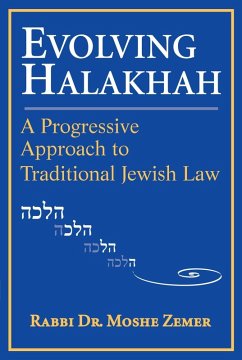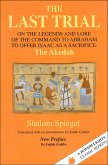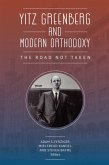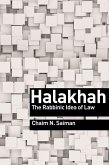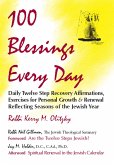An essential reference work for any thinking student of religion.
Innovative and provocative, Evolving Halakhah affirms the system of traditional Jewish law, Halakhah, as a developing and moral structure, flexible enough to accommodate the changing realities of each generation. In this accessible analysis of Halakhah, Moshe Zemer issues a clarion call to follow the ancient and modern principles of evolving Halakhah, which demands ethical deeds, the discovery of holiness in the Commandments, a critical approach to the Tradition, and responsibility of the entire Community of Israel. These principles are viewed as the framework in which the other commandments are applied.
To Jews who sometimes see no choices but those of fundamentalist rigidity on the one hand, or total rejection of tradition on the other, Zemer argues instead for awareness of the inherent flexibility of the halakhic system. Halakhah, he argues, has had many voices, and has changed to meet every generation's needs. Equipped with this view, liberal Jews can reclaim their tradition from a conservative rabbinic establishment that all too often-especially in Israel-has seen the voice of strictness as more authentic than the voice of lovingkindness.
The product of Zemer's thirty-five years of work in the Israel Movement of Progressive Judaism, Evolving Halakhah includes chapters on matters ranging from personal status, especially marriage and conversion, through the "political" Halakhah of a response to the intifada. It shows that the traditional framework for understanding the Torah's commandments can be the living heart of Jewish life for all Jews-including Reform, Reconstructionist, Conservative, and Modern Orthodox.
Innovative and provocative, Evolving Halakhah affirms the system of traditional Jewish law, Halakhah, as a developing and moral structure, flexible enough to accommodate the changing realities of each generation. In this accessible analysis of Halakhah, Moshe Zemer issues a clarion call to follow the ancient and modern principles of evolving Halakhah, which demands ethical deeds, the discovery of holiness in the Commandments, a critical approach to the Tradition, and responsibility of the entire Community of Israel. These principles are viewed as the framework in which the other commandments are applied.
To Jews who sometimes see no choices but those of fundamentalist rigidity on the one hand, or total rejection of tradition on the other, Zemer argues instead for awareness of the inherent flexibility of the halakhic system. Halakhah, he argues, has had many voices, and has changed to meet every generation's needs. Equipped with this view, liberal Jews can reclaim their tradition from a conservative rabbinic establishment that all too often-especially in Israel-has seen the voice of strictness as more authentic than the voice of lovingkindness.
The product of Zemer's thirty-five years of work in the Israel Movement of Progressive Judaism, Evolving Halakhah includes chapters on matters ranging from personal status, especially marriage and conversion, through the "political" Halakhah of a response to the intifada. It shows that the traditional framework for understanding the Torah's commandments can be the living heart of Jewish life for all Jews-including Reform, Reconstructionist, Conservative, and Modern Orthodox.
Dieser Download kann aus rechtlichen Gründen nur mit Rechnungsadresse in A, D ausgeliefert werden.

